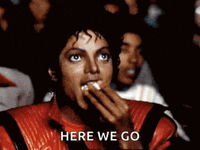Still a relative newbie to hunting here, with two deer to my name—one via rifle, the other via crossbow. I’m very interested in picking up a compound bow and getting proficient with it, but I’d be lying if I said I didn’t have some hesitation about hunting with it when there’s a more powerful weapon permitted during the same season (meaning the crossbow: I use a Ravin R10 with a quality scope and it’s a tack-driver out to 50 yards).
I imagine this is one of those quasi-religious questions in the hunting world, and one that’s probably been written about a million times, so if anyone knows of a good article or thread that covers this, I’d be grateful for the pointer.
My question is: what’s the justification for using a less proficient/accurate weapon to hunt? Why would we want to use a primitive weapon, or a muzzleloader or a compound bow, when such weapons increase the likelihood that the hunter may injure an animal? (Actually, is that even true or am I making a false assumption? I’m just assuming we’re more likely to injure with an arrow than a bullet.) If our goal is to follow fair chase and to harvest, say, a deer as efficiently and ethically and quickly as possible, shouldn’t the law demand that we always use the weapon that will get that job done best? This is an aspect of hunting seasons/guidelines that I still haven’t grasped.
Is the answer the sort of obvious, sentimental one?---that some hunters just prefer bows to rifles and so natural resource departments allow for archery seasons to accommodate that, even though (again I’m making an assumption) rifles kill more efficiently? If that’s the case, isn’t that idea in conflict with the priority of killing cleanly? Don’t muzzleloaders, for example, increase the chance that someone will make a bad shot? (I do realize that new muzzleloaders are pretty dang accurate.)
I should add, I really am asking with genuine curiosity, not an agenda of any kind. I’m not skeptical about having these seasons---I’m just not sure I understand the rationales behind them, and am very open to being persuaded. If the answer is that we want to give the deer a better chance by making hunting a bit harder---and so this is a way to prolong the hunting season and avoid over-harvesting---are we accomplishing that goal without injuring lots of animals in the process?
I imagine this is one of those quasi-religious questions in the hunting world, and one that’s probably been written about a million times, so if anyone knows of a good article or thread that covers this, I’d be grateful for the pointer.
My question is: what’s the justification for using a less proficient/accurate weapon to hunt? Why would we want to use a primitive weapon, or a muzzleloader or a compound bow, when such weapons increase the likelihood that the hunter may injure an animal? (Actually, is that even true or am I making a false assumption? I’m just assuming we’re more likely to injure with an arrow than a bullet.) If our goal is to follow fair chase and to harvest, say, a deer as efficiently and ethically and quickly as possible, shouldn’t the law demand that we always use the weapon that will get that job done best? This is an aspect of hunting seasons/guidelines that I still haven’t grasped.
Is the answer the sort of obvious, sentimental one?---that some hunters just prefer bows to rifles and so natural resource departments allow for archery seasons to accommodate that, even though (again I’m making an assumption) rifles kill more efficiently? If that’s the case, isn’t that idea in conflict with the priority of killing cleanly? Don’t muzzleloaders, for example, increase the chance that someone will make a bad shot? (I do realize that new muzzleloaders are pretty dang accurate.)
I should add, I really am asking with genuine curiosity, not an agenda of any kind. I’m not skeptical about having these seasons---I’m just not sure I understand the rationales behind them, and am very open to being persuaded. If the answer is that we want to give the deer a better chance by making hunting a bit harder---and so this is a way to prolong the hunting season and avoid over-harvesting---are we accomplishing that goal without injuring lots of animals in the process?

